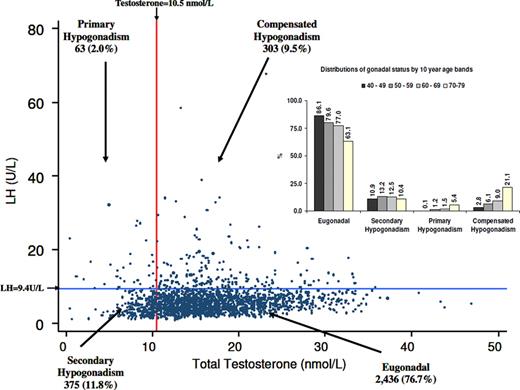ClashCityRocker
New Member
I am 51 years old, fit, and physically active. BMI is 19.3. Body fat is 9.8%.
Health is okay, but I am quite thin and the hardest of "hard gainers" in the gym. Sleep is rather poor (3-6 hours a night). Blood pressure is borderline high (134/80). I am going through a divorce and stressed about that.
I work as a phlebotomist in a men's health clinic that specializes in TRT. Curious about my own status, I had comprehensive lab work. I am not currently taking any exogenous T or T boosters.
Values for CMP, CBC, and U/A were all normal. LDL (159) and total cholesterol (235) were high, but that is a longstanding, probably genetic issue.
The hormone levels, however, puzzle me.
In range results:
Total Testosterone: 669 (ref. range 193 -- 740)
Calc. Free Testosterone 79.8 (ref. range 48.0 -- 250.0)
TSH: 1.45 (ref. range 0.270 -- 4.200)
Estradiol 18.1 (ref. range 11.3 -- 43.2)
Out of range results:
Free Testosterone: 1.2% (ref. range 1.3 -- 2.9)
SHBG: 77.1 (19.3 -- 76.4)
FSH 47.2 (ref. range 1.5 -- 12.4)
LH: 19.0 (ref. range 1.7 -- 8.6)
It seems I have good T but suboptimal bio-availability with the borderline low Free T and the borderline high SHBG. Is there anything I can do to improve that situation?
And what should I make of the high levels for FSH and LH?
Thank you for any feedback.
Health is okay, but I am quite thin and the hardest of "hard gainers" in the gym. Sleep is rather poor (3-6 hours a night). Blood pressure is borderline high (134/80). I am going through a divorce and stressed about that.
I work as a phlebotomist in a men's health clinic that specializes in TRT. Curious about my own status, I had comprehensive lab work. I am not currently taking any exogenous T or T boosters.
Values for CMP, CBC, and U/A were all normal. LDL (159) and total cholesterol (235) were high, but that is a longstanding, probably genetic issue.
The hormone levels, however, puzzle me.
In range results:
Total Testosterone: 669 (ref. range 193 -- 740)
Calc. Free Testosterone 79.8 (ref. range 48.0 -- 250.0)
TSH: 1.45 (ref. range 0.270 -- 4.200)
Estradiol 18.1 (ref. range 11.3 -- 43.2)
Out of range results:
Free Testosterone: 1.2% (ref. range 1.3 -- 2.9)
SHBG: 77.1 (19.3 -- 76.4)
FSH 47.2 (ref. range 1.5 -- 12.4)
LH: 19.0 (ref. range 1.7 -- 8.6)
It seems I have good T but suboptimal bio-availability with the borderline low Free T and the borderline high SHBG. Is there anything I can do to improve that situation?
And what should I make of the high levels for FSH and LH?
Thank you for any feedback.




















